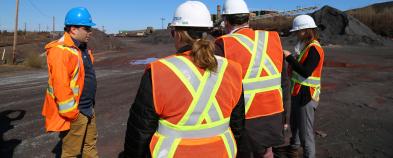
Recent research in the MinErAl network has investigated the implications of mining development for Indigenous livelihoods by examining the relationship between Indigenous employment and industrial relations in mining. Especially in contexts where access to waged employment is otherwise limited, access to mining jobs is often understood as the principal benefit that mining development brings to local communities. Recent research in Canada by Suzanne Mills (2018) and in New Caledonia by Christine Demmer, Severine Bouard, Pierre-Yves Le Meur, and Leah Horowitz has interrogated this assumption by investigating Indigenous workers’ access to training opportunities and quality employment and the institutional factors—spanning human resources practices, industrial relations, community agreements, and corporate and union culture—limiting this access. Katie Mazer's postdoctoral project aims to build on this research by bringing these two case studies into conversation and placing them in the context of national and global trends in mining labour practices. Drawing on data collected through research in Canada and New Caledonia, a study of collective agreements, community agreements, and company documents related to these specific mining operations, and a survey of mining human resources industry literature, the proposed project will assemble a transnational, multi-sited analysis of nickel mining employment practices as they pertain to Indigenous livelihoods.

